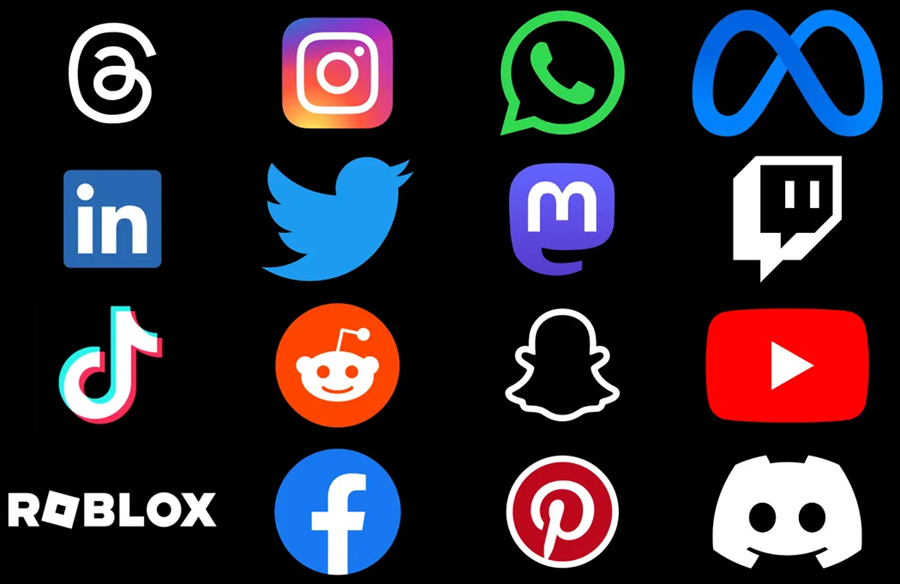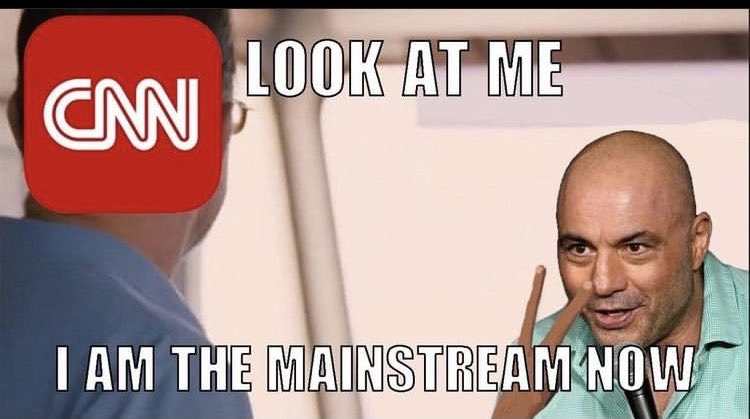Platforms

One of the goals of the metaculture wiki is to bring the culture of the extremely online into reach for regular people with jobs. This is especially so for parents who are often at an disadvantage when it comes to technology and time, making it difficult to know the types of ideas their children are being exposed to on social media.
"It takes discipline not to let social media steal your time." -Alexis Ohanian
Related pages: Algorithm, Promotion, Outrage, Meme, Information Overload, Misinformation, Technology, Artificial Intelligence, Crypto-bros, Manosphere
What is a Platform?
Platforms is used as a generalized term to refer to the online information ecosystems created by social media and other tech companies, as well as legacy media and other mass communication platforms.
This can include operating systems, online games, Virtual Reality worlds with familiar names, messaging systems, email, radio, TV, or any other system that allows large numbers of people to connect and share ideas.
While social media as a concept is likely to be dated within a few years, new platforms will replace them. Therefore, discussions around social media issues, such as Freedom of Speech, will refer to them as Platforms since the same issues around hate speech, trolling, and content moderation that must be addressed.
For a full account of what social media does to our brains, especially for children, The Anxious Generation by Jonathan Haidt has a bestselling book and many practical resources for taking action. There is even a whole chapter dedicated to secular spirituality and its necessity for finding happiness.
Lowered Cost of Speech
Lies are Free. The truth costs money. Traditional print and broadcast media had significant production costs. Social media has zero production costs. Very few people would spend money on trolling, but they'll happily spend all day doing it for free.
Newsfeeds
The never-ending scrolling newsfeeds that these platforms offer provide an algorithmically-generated stream of consciousness that supplants your own with the random mix memes, pictures of children and people on vacations, outrage porn, propaganda, and political hate speech.
The promotion of content via AI algorithms designed to maximize the time you spend scrolling down the endless rabbit hole is inherently antithetical to happiness.
Curating Your Feed
Knowing how to create an information environment that promotes learning and happiness is a critical skill in the modern age.
Life is an IRL Newsfeed
The experience of consciousness is similar to the never-ending scroll of the newsfeed, as well as the training of Artificial Intelligence. However, your brain is the AI you are training, and everything you see, taste, touch, read, hear, or watch is the content of your feed that forms the training dataset. And just like AI, if your training dataset is full of racism, hate, misogyny, and other terrible ideas, when it comes time for someone to ask you a question you are going to repeat those ideas in your answers.
Have a Nice Internal Monologue
Another part of your feed is the internal monologue. The things you say to yourself have a huge impact on your emotions and beliefs. If you say good things about yourself in your internal monologue, then you will reinforce those beliefs and experience the same emotions that you get when someone else says nice things about you. If you tell yourself that you are stupid, worthless, and incompetent, then you will feel that way as well.
Careful What You Follow
Nurture your brain with ideas that are optimistic, promote wonder and joy, and most importantly, evidence-based. Content producers that regularly promote hyperbolic outrage should be avoided, especially when you agree with their point of view. They are not influencing you or providing useful information, they are using you for clicks. Do not sacrifice your peace of mind for their monetization.
It goes without saying that training your internal AI on misinformation, pseudoscience, superstition, and conspiracy theories will produce output containing massive hallucinations and render it utterly useless for any practical applications.
If you do not curate your newsfeed, in social media, traditional media, and in the social interaction you make part of your life, then you free will be shaped by the corporations, politicians, and grifters who aim to profit from it.
Recognize and Reject Clickbait
The only way to fight the trend towards outrage content that destroys our minds and our democracies is to make it taboo in popular culture. Our brains naturally gravitate towards this kind of content, and extensive A/B testing has proven it to be the case. However, clickbait is modern temptation. It is a snake with an electronic apple, beckoning you to indulge your worst thoughts so you will be more susceptible to grift.
Since the principles of free speech make most regulatory solutions to this problem as untenable as they are undesirable, if people recognize the emotional manipulation of the media and make a conscious choice to ignore it instead of giving in to temptation and outrage, then the incentive to keep producing this content will quickly go away.
The Legacy Media Problem
Trust in the major media institutions is at an all-time low. This has ironically led many people to give their trust to those who transparently peddle misinformation, conspiracy theories, pseudoscience, and grift. This is due to the contrarian position that anything the untrustworthy legacy media rejects must be true, since they always lie.
This position represents a fundamental misunderstanding of how the legacy media lies. Factual correctness is not their issue. Legacy media believes that its trust is based on factual correctness, and they employ fact checkers and editors whose job it is to make sure those factual errors aren't published or broadcast. While they aren't perfect, they at least have a system in place to verify factual accuracy. The vast majority of new media is completely unchecked.
The legacy media lies by omission. It lies in which news stories and points of view it chooses to cover and which ones it ignores. It lies by repeating the opinions of politicians and oligarchs without questions or context. It lies by promoting stories from advertising sponsors and burying negative stories about them. It lies by presenting politics as a team sport for ratings, instead of a collaboration about how best to improve the country. It lies because the opinions represented in their editorial board reflect ideologies of the elite institutions they graduated from, making them unlikely to have viewpoints outside of the mainstream.
Some of the key cultural cognitive dissonance causers that led to this loss of trust are:
- The lead up to the Iraq war when misinformation about WMDs went unchallenged.
- Uncritical reporting on the war on drugs years after it had lost public support.
- Decades of ignoring issues from minority communities.
- Overcompensating for decades of ignoring issues from minority communities.
- The incomprehensibility of for-profit healthcare reporting that constantly exaggerates and misinterprets the benefits of every pill or product, the conclusions you can draw from research, the safety or danger of anything you eat or activity you participate in.
- Being owned by oligarchs and operating for-profit, and the incentives inherently involved in ad-supported content.
Edward Herman and Noam Chomsky's Manufacturing Consent is the quintessential book on this subject. Necessary Illusions is another excellent book examining the nature of ideology and propaganda in the legacy media.
New Media is Mainstream Media

When Joe Rogan regularly gets over ten times the audience of any of the top rated broadcast news programs and talk shows, it can no longer be argued that podcasts represent an "alternative" to the "mainstream" media. The thing that most people listen to is mainstream by definition.
You can call it Legacy Media, Broadcast Media, Cable News, or Traditional Media, but if someone says Mainstream Media you should envision Joe Rogan, Ben Shapiro, Andrew Tate, and Alex Jones, not CBS, or CNN. It may make you weep for humanity, but it will be a more accurate use of the term.
If You're Not The Customer, You're the Product
It's disputed who said it first, but anything you get for free is making money from your attention. This is true of any advertising-based platform. Attention is limited by time, and it is ultimately all we have.
Don't be an attention whore, selling your time and privacy for an endless stream of clickbait, misinformation, and outrage, just to feed your addiction.
- The Attention Economy
- Attention Pays - The Gray Area with Sean Illing
- The Siren's Call - Chris Hayes book on How Attention Became the World's Most Endangered Resource
- What Experts Really Think About Smartphones and Mental Health - Plain English with Derek Thompson
Dead Internet and Enshittification
The fact that AI-driven bots have taken over most online platforms has caused some to theorize that real human discourse is disappearing and being replaced by bots and AIs talking to each other. This is known as the Dead Internet Theory.
More generally, Enshittification is the tendency for platforms to degrade as the average intelligence of the user base steadily drops once it grows past the early adopters and into the mainstream. Some of this is due to bots, some of it is trolling, some is propaganda, and a whole lot is due to the Dunning-Kruger effect.
This video does a great job of linking the grift economy to the Enshittification of the Internet.
A great analysis of the history of bots, troll farms, and the propaganda tactics of that try to destroy your will to tell truth from fiction.
Obligation to Oppose the Oligarchy's Outrage
The platforms that promote outrage have been corrupted. The tech giants that control the modern Internet are digital monopolies just like the oil and railroad monopolies of the gilded age. This has led to oligarchy and the rise of fascism, as it did 100 years ago. It is the inevitable reaction that oligarchs have to the socialist pressures of the working class.
Boycotting and divestment from the major platforms owned by oligarchs, that continue to use algorithms that optimize for time and outrage, is a moral obligation at this point. Find some other way to share your vacation, baby, and cat photos, since these were the only reason we wanted social media in the first place. Use an alternative search engine. Shop locally, or at least don't shop oligarchy. You can wait an extra couple of days on delivery, or actually remember how enjoyable shopping trips can be. You can get better electric cars and rockets from companies not trying to undermine democracy.
Divestment may hurt your short-term returns, but when the bubble bursts you will be very glad you did. Tech stocks go up because they hype themselves on their own platforms to inflate their stock prices. What was the last truly innovative product created by Silicon Valley that wasn't 90% hype? Virtual reality? Wearable tech? Crypto-currency? Artificial intelligence? There is no widespread adoption or use case for any of these hype-based technologies that have been the main driver for continued investment in tech monopolies. It's a bubble, and divestment is the only moral choice.
The Fediverse offers an alternatives to the platforms owned by tech-bro monopolists, network state enthusiasts, and crypto-fascists.
Podcasts on Platforms
Some relevant podcast episodes discussing the dangers of social media, how to improve our platforms, developing new social norms regarding Internet usage, and other relevant topics.
- Better Offline
- Escaping the Matrix
- Finding Focus
- You Can’t Hit Unsend
- Buying Attention
- Schadenfacebook
- What Your Online Self Reveals About You
- The Screens Between Us
Platforms on Platforms
Criticism of social media platforms, published on the very same platforms, for your viewing pleasure.